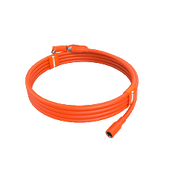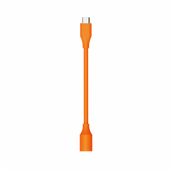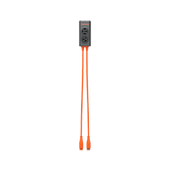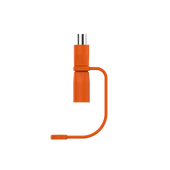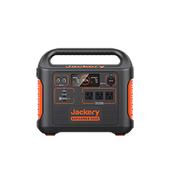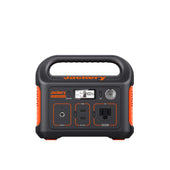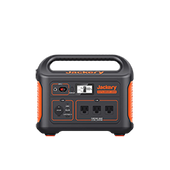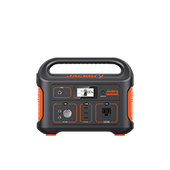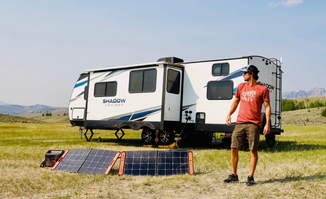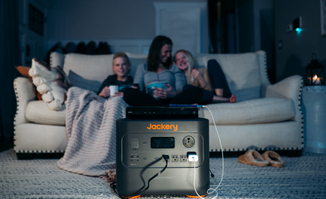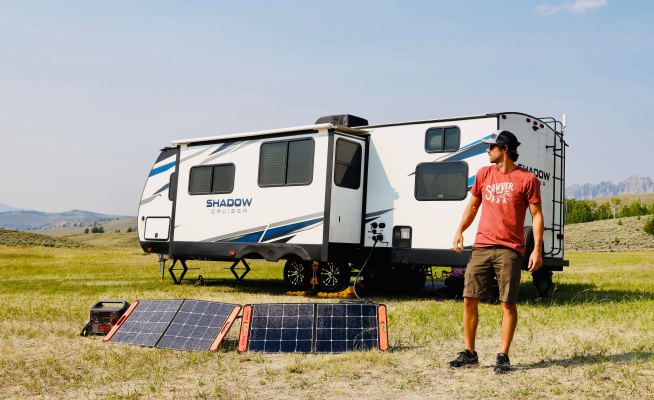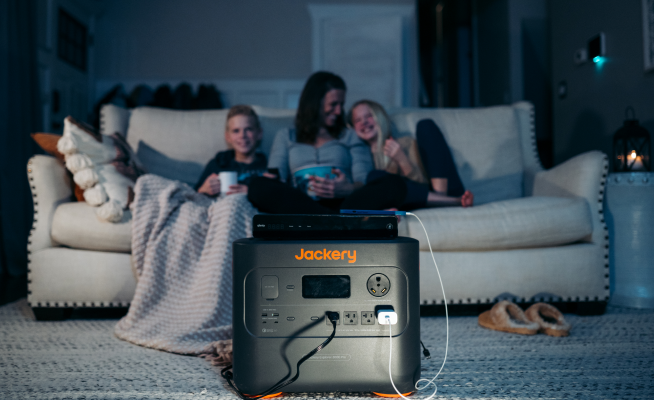How Many Watts Does a Refrigerator Use? [and Mini-Fridge, Freezer]
No kitchen is complete without a refrigerator, and this appliance runs 24/7. Hence, it is important to know how many watts a refrigerator uses for many reasons. Suppose you live in an area that can be hit by harsh weather, and there is a chance of a power outage. Now, you need to know an estimate of power usage by appliances to arrange a power generator. Also, you should know the average power consumption to save on the power bill.
How many watts a refrigerator use is a challenging question because power consumption depends on many factors, including the type of refrigerator, size, usage, and season. Generally, a domestic fridge consumes about 350-780 watts so let us go into the details.

Key Takeaways About Powering A Refrigerator
- As we discussed earlier, an average home refrigerator uses 350-780 watts. Different types of refrigerators use different watts. For example, minifridge wattage is less than the refrigerator watts and freezer power requirements. You can check the exact power usage through the power meter.
- In an average house, a fridge uses around 1 to 2 kilowatt-hours (kWh), costing about $150 per year per fridge.
- As electricity bills are soaring, this is high time to analyze alternate energy sources that are cost-effective and more environment-friendly. Solar panels are a great option because they have no fuel cost after the initial investment.
How Many Watts Does A Refrigerator Use?
1. Definition of Amps, volts, watts, running watts, watt-hours
- Watt is a unit of Power indicating the rate of energy transfer. In electric terms, it is the rate at which one ampere of current flows through one volt.
- W= A* V
- Volt or Voltage (V):
- Volt is the energy measure running through an electric circuit.
- Current – Ampere (A):
- Current is the electricity flowing through the circuit per second. The more the current, the more the ampere.
- Capacity – Watt-hour (Wh):
The capacity of a battery is Amps multiplied by voltage. It is the total amount of electricity generated due to electrochemical reactions in the battery.
- Running watts are the continuous watts required to keep the electronic device running. It is also called rated watts.
- Starting watts are extra watts required to start electrical devices, which are needed for a few seconds. This is the maximum watt measure required from the electric source.
2. How Many Watts Does A Mini Fridge, Freezer, and Refrigerator Use?
You can find the voltage and amperes on the sticker inside your refrigerator. We are using these numbers to calculate how many watts a refrigerator use. The formula to calculate the watts is to multiply the amperes with volts.
Watts = Volts * Amperes
The twist in the story here is that the wattage we have found is the energy your refrigerator uses when the compressor is working. However, the compressor is not always on. It turns on when the refrigerator is about to lose its cooling, then the compressor starts working to maintain the temperature and then goes off again. So, you get a smaller answer to your question “how many watts does a refrigerator use?”.
When we multiply the Watts by 24, you get the wattage for the whole day, and dividing the result by 1,000 converts it to KWh. Let us show you all the calculations by an example. Suppose your refrigerator runs at 120 Watts.
Multiply it by 24 to get the whole day's wattage, and it comes out to be 2,880 Watts.
However, the estimated running wattage of the refrigerator is around one-third of the actual wattage. Dividing 2,880 by 3, we get the answer of 960 watts.
Divide the result by 1,000 and it gives you 0.96 kWh.
How many watts does a refrigerator is not a constant because many factors contribute to power consumption, including;
- Location of the refrigerator as the ones placed in well-ventilated areas use less Power.
- If you open the fridge door frequently or left open, it will consume more watts.
- Seasons as refrigerators use more energy during summer.
- Technology also plays a role because inverter refrigerators may use less energy.
|
|
Refrigerator Wattage |
Running Wattage |
Length of Time Powered (Hours) |
Estimated Power Needed Daily (Watt-Hours) |
|
Refrigerator |
500 W |
167 |
24 |
4008 |
|
Minifridge |
65 W |
22 |
24 |
519.48 |
|
Freezer |
100 W |
33 |
24 |
799 |
3. How Many Amps Does A Refrigerator Use
We have figured out how many watts a refrigerator is and will now calculate the ampere usage of the refrigerator.
Amps = Watts/Volts.
If your refrigerator uses 960 watts and 120 Volts then we can calculate that it will use eight amps (960 watts/120 volts).
Calculate How Much Energy Your Own Refrigerator Uses
The first step to finding out how many watts does a refrigerator start with identifying the wattage of your refrigerator. Usually, a sticker is placed on the inside wall of your fridge or sometimes at the back of the unit. You can also find the specification in the user manual of your appliance.
You will find the volts and amperes in the specification. Suppose your refrigerator runs on 120 Volts and 5 amperes.
- Volts = 120
- Amperes = 5
- Watts = Volts * Amperes
- Watts = 120 * 5
- Watts = 600
Best Solar Generator for Refrigerator
The best solar generator for a refrigerator is the one that provides sufficient energy for your refrigerator, including the starting watts. The smooth running of the generator is also important. Secondly, good energy storage is also required to provide battery backup for the refrigerator after sunset when it cannot acquire direct solar energy.
The best solar generators for refrigerators are Jackery Solar Generator 2000 Pro and Solar Generator 1500.
Jackery Solar Generator 2000 Pro

Jackery's Solar Generator 2000 Pro comes with 2160 Wh capacity, which means it can also support large appliances, including refrigerators. It charges fast, wall charging within 2 hours, and then supports the appliances. Since it uses solar Power and no fossil fuels or others, it is environmentally friendly and ensures quiet working.
There is also a mini display where you can check the output numbers and ensure the proper working of your battery-powered refrigerator. It shows input and output wattage ratings.
Jackery Solar Generator 1500

Jackery Solar Generator 1500 combines Explorer 1500 and 4x SolarSaga 100W. Its seven output ports can charge multiple devices simultaneously, including your refrigerator. This 1534Wh capacity solar generator charges in only 4 hours. It has six safety and battery system management layers to monitor battery health and protect appliances.
How to calculate the hours:
The working time of the batteries is usually less than the battery's capacity because there is always a loss of Power during the working, so an honest estimation of how long it will support must take this 15% loss of Power into account.
Working time = Capacity Wh * 0.85 / operating wattage of your device.
An Solar Generator 2000 Pro working time will be 2160 Wh * 0.85 / 550w = 3.33 hrs.
|
Jackery Products |
Portable Power Station Capacity (Watt-Hours) |
AC Output |
Refrigerator Running Wattage |
Supported Working Hours (When the portable power station is fully charged) |
|
Jackery Solar Generator 2000 Pro (Explorer 2000 Pro + SolarSaga 100W) |
2160 WH |
120V, 60Hz, 2200W (4400W Peak) |
550 W |
3.33 Hrs |
|
Jackery Solar Generator 1500 (Explorer 1500 + SolarSaga 100W) |
1534 WH |
110V, 60Hz, 1800W (3600W Peak) |
550 W |
2.37 Hrs |
FAQ about refrigerator wattage
1. What size generator do I need to run a refrigerator?
As we already discussed, how many watts a refrigerator use or how many watts a mini fridge uses differ in running condition and startup. The starting wattage is always higher, and you need a supply of these watts for a few seconds. An average refrigerator usually consumes around 1500 watts of the generator to start and keep running.
2. Will a 1500-watt generator run a refrigerator?
Yes, a 1500-watt generator is enough for running a refrigerator. We have already discussed how to calculate your refrigerator's wattage.
3. Can I run a full-size refrigerator using a solar generator?
Yes, if your solar generator is big and smooth enough, you can run a full-size refrigerator without any problem.
4. Can a generator damage a refrigerator?
A quality generator does not damage a refrigerator. For instance, Jackery has a built-in BMS system that provides 12 layers of charging safe guarantees and monitors energy use.
Tips for Reducing Refrigerator Power Consumption
How many watts a refrigerator use also depends on the location, size, technology, and usage. Hence there are certain measures that result in better power consumption and efficient performance. Let us see what can help.
1. Invest In An Energy-Efficient Appliance
Old refrigerators use older technology, and they are not very energy efficient. So, investing in a new energy-efficient appliance greatly reduces the watts required to run your refrigerator. You have the energy usage information on the sticker on your refrigerator. The more + signs you have after A, the more energy-efficient your refrigerator is.
2. Select A Well Ventilated Location
It is important to place your refrigerator where it gets enough ventilation, and the compressor does not have to run continuously to maintain the temperature. The location must be away from an oven or hub and must avoid direct sunlight.
3. Maintain Optimum Temperature
Always set an optimum temperature for your refrigerator and freezer, which is 5 degrees Celsius and -18 for the freezer. It ensures that your refrigerator uses only the required watts and keeps the food safe for consumption. Every additional degree of temperature costs around 6% more electricity.
4. Do Not Frequently Open The Refrigerator Door Or Keep It Open
It is obvious that whenever you open the refrigerator door, you let the cool and warm air inside. Consequently, your refrigerator uses more energy to again come to the optimal temperature. It increases how many watts your refrigerator uses during the day. So, you might want to fight the urge to open the fridge door just to check what is inside.
5. Defrost Food In The Refrigerator
This is a really interesting tip when you place the frozen food inside the refrigerator to defrost; it serves like an ice pack. Since it keeps the refrigerator temperature down, you save on the energy consumption of your refrigerator because the frozen food is doing its work instead of the compressor.
6. Do Not Place Warm Items In The Refrigerator
The flip side of the above tip is never to place warm or hot food inside the refrigerator. Because it heats the refrigerator, the compressor must do more work to return it to the optimal temperature. The more work it does, the more watts it eats.
7. Defrost Your Freezer
Regularly defrosting your freezer also makes your refrigerator energy efficient because the thick ice layer insulates, and the appliance has to use more energy to maintain the temperature. However, it is even better if you have a no-frost technology appliance.
8. Check Door Seals
A loose rubber seal means your refrigerator door is not properly insulated, and the cool air is escaping from it continuously. Also, keep the items in the fridge properly, so they do not hinder complete door insulation.
Conclusion
A refrigerator is an essential electric appliance for any household and it runs 24 hours a day. Therefore it is important to know how many watts a refrigerator uses and how to make it energy efficient. This helps in saving on power costs. Also, when you expect a power outage or planning to spend some time off-grid, you need to know how big a power generator you need to support the essentials. We have discussed the power consumption of refrigerators, minifridges, and freezers and how you can calculate your refrigerator's wattage requirement.
Disclaimer:
The runtime mentioned for appliances powered by Jackery is for reference only. Actual runtime may vary under different conditions. Please refer to real-world performance for accurate results.







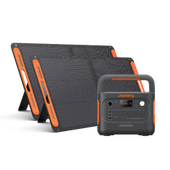



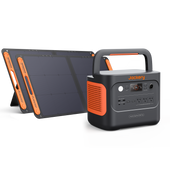

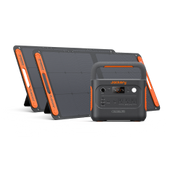
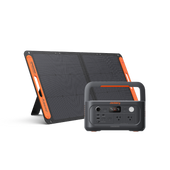
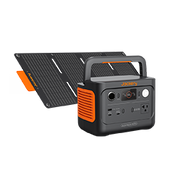
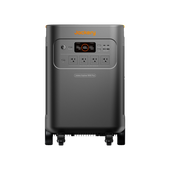

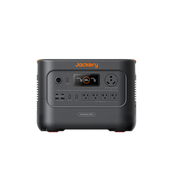
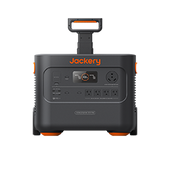
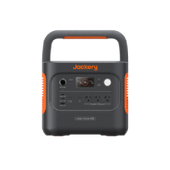
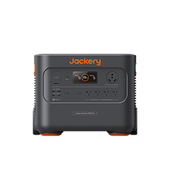

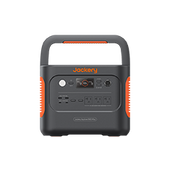
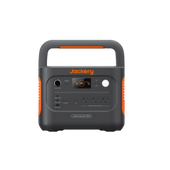
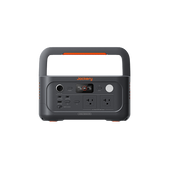

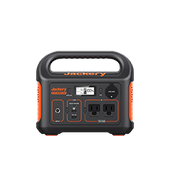
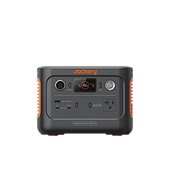
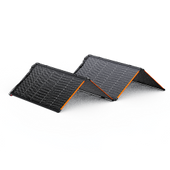
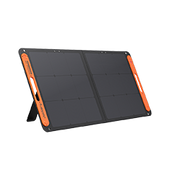

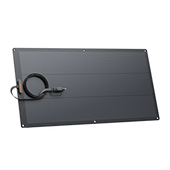
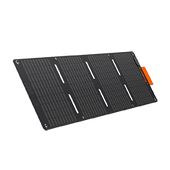
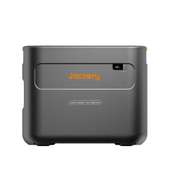
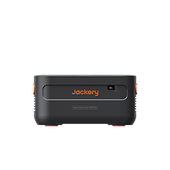
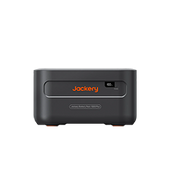
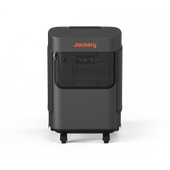
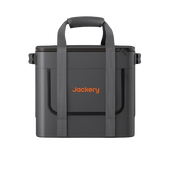


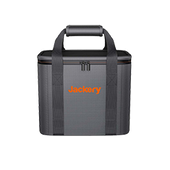
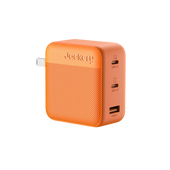
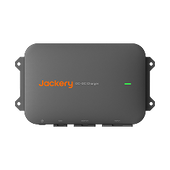
![[Add-on] Jackery Manual Transfer Switch for Explorer 5000 Plus](http://ca.jackery.com/cdn/shop/files/add-on-jackery-manual-transfer-switch-for-5000-plus-240V.webp?v=1757043692&width=170)
